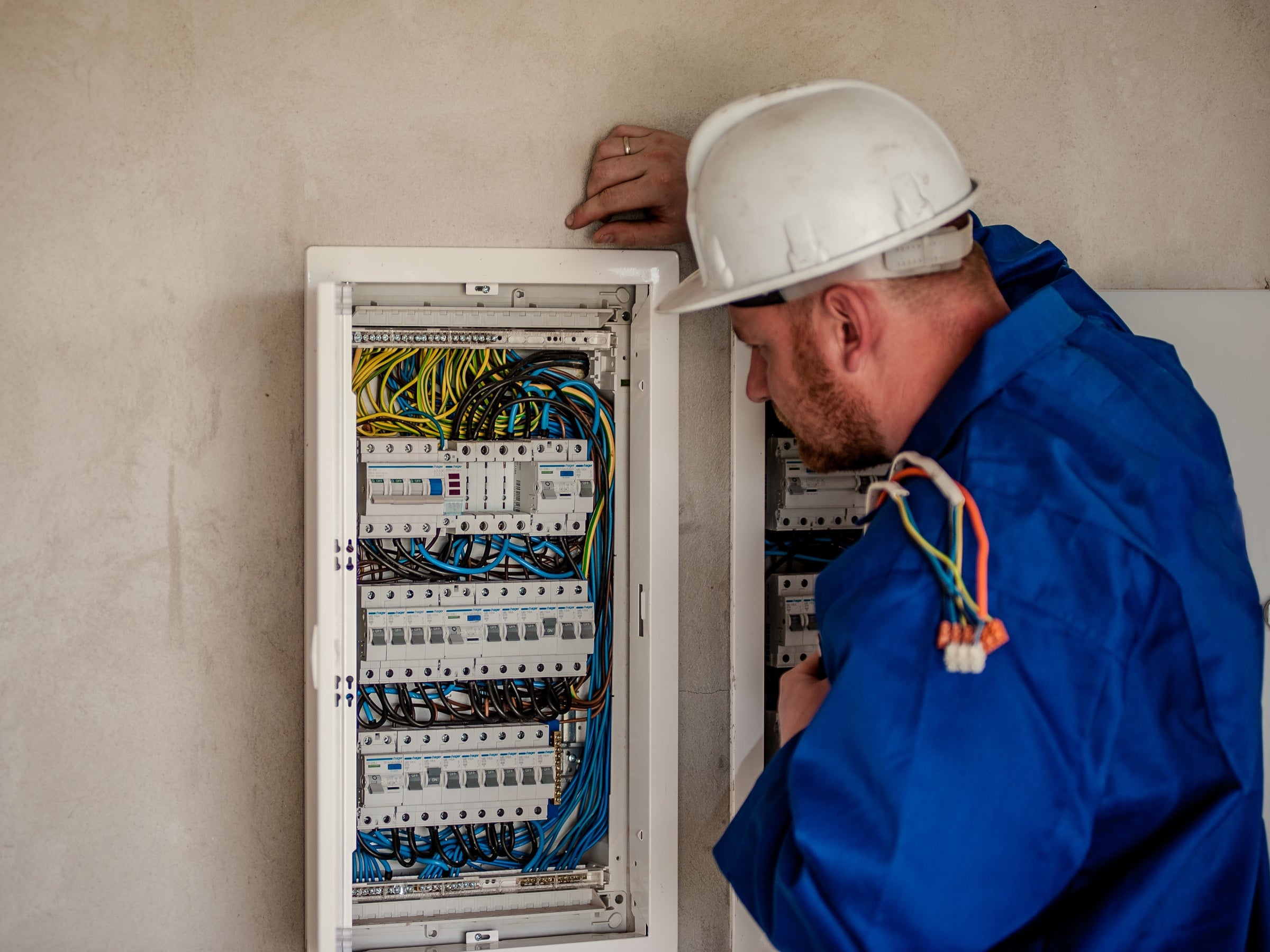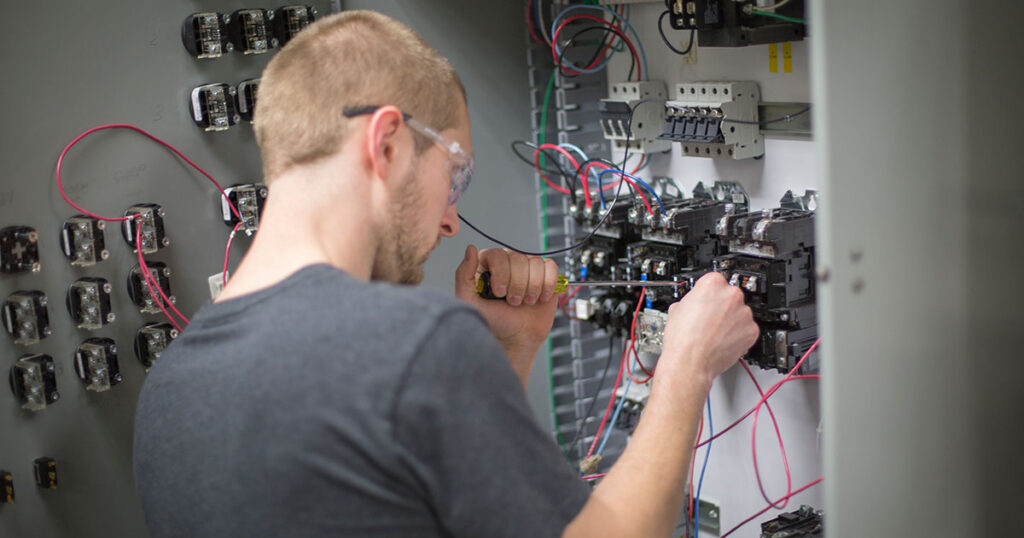Electrical maintenance is crucial for safety and efficiency in any setting. It ensures the smooth operation of electrical systems.
Regular electrical maintenance prevents potential hazards and extends the life of your equipment. Without it, small issues can escalate into significant problems. This blog will explore the essentials of electrical maintenance, highlighting its importance and how it can save you from costly repairs and dangerous situations.
Stay tuned to learn practical tips and insights to keep your electrical systems in top condition.
Importance Of Electrical Maintenance
Electrical maintenance is crucial for every household and business. Regular checks and fixes ensure systems run smoothly. They also prevent unexpected failures. This can save you time and money. Let’s dive into why electrical maintenance is so important.
Safety
Safety is the top priority in electrical maintenance. Faulty wiring can cause fires. This puts lives at risk. Regular checks can identify these issues early. Fixing them prevents accidents. It also ensures your home or business is safe. Professionals can spot hidden dangers. They have the right tools and knowledge. Always hire a certified electrician for safety checks.
Efficiency
Efficiency is another key benefit of electrical maintenance. Well-maintained systems use less energy. This reduces your electricity bills. It also extends the life of your appliances. Faulty systems work harder. This uses more power and can cause breakdowns. Regular maintenance ensures everything runs smoothly. It keeps your systems efficient and reliable. This means fewer interruptions and lower costs.
Common Electrical Hazards
Electrical maintenance is crucial for ensuring safety and efficiency. Ignoring common electrical hazards can lead to serious risks. Understanding these hazards helps prevent accidents and keeps your property safe.
Faulty Wiring
Faulty wiring is a leading cause of electrical fires. Old or damaged wires can overheat. They can also cause electric shocks. Regular inspections help identify faulty wiring early.
- Frayed wires: These can expose live wires.
- Loose connections: These can create sparks.
- Outdated wiring: Older homes may have wires not up to code.
Always hire a professional to inspect and repair wiring issues.
Overloaded Circuits
Overloaded circuits occur when too many devices draw power from a single source. This can cause the circuit to trip. It can also lead to overheating and fires.
| Signs of Overloaded Circuits |
|---|
| Frequent tripping of breakers |
| Flickering lights |
| Warm outlets or switches |
To prevent overloads, spread out your electrical devices. Avoid using multiple high-wattage appliances on the same circuit.
Install additional circuits if necessary. Consult with an electrician to assess your power needs.
Preventive Maintenance Tips
Preventive maintenance is essential for ensuring the longevity and efficiency of your electrical systems. By following a regular maintenance routine, you can avoid unexpected breakdowns and costly repairs. Below are some practical preventive maintenance tips that can help keep your electrical systems in top shape.
Regular Inspections
Conducting regular inspections is crucial. Check for any signs of wear and tear, such as frayed wires or loose connections. Use a checklist to ensure you cover all areas:
- Inspect circuit breakers and fuses
- Check for any exposed wiring
- Ensure all switches and outlets are functioning properly
- Look for any signs of overheating
These inspections can help identify potential issues before they become serious problems. Make sure to document each inspection for future reference.
Proper Equipment Use
Using electrical equipment correctly can prevent many common issues. Here are some tips:
- Always read the manufacturer’s instructions before using any equipment
- Avoid overloading circuits by plugging in too many devices
- Use surge protectors to safeguard sensitive equipment
- Unplug equipment that is not in use to save energy and reduce risk
Improper use of electrical equipment can lead to accidents and damage. Following these tips can help ensure safe and efficient operation.

Credit: stradaservices.com
Seasonal Maintenance Tasks
Seasonal electrical maintenance tasks are crucial for a safe and efficient home. These tasks help prevent electrical issues and ensure your system runs smoothly throughout the year. Proper upkeep can save money and avoid potential hazards. Let’s explore some essential tasks for both winter and summer seasons.
Winter Preparations
Winter brings colder temperatures and increased energy use. It’s vital to prepare your electrical system for the season. Start by inspecting your heating systems. Ensure all connections are secure and free of wear. Check your circuit breakers. Make sure they are functioning correctly to handle the increased load.
Inspect outdoor lighting and outlets. Cold weather can cause damage, so ensure they are in good condition. Replace any broken bulbs or damaged fixtures. Consider using weatherproof covers for outdoor outlets. This protects them from snow and ice.
Test smoke and carbon monoxide detectors. These devices are crucial for safety during the winter. Ensure they have fresh batteries and are working properly. Proper ventilation is also important. Check your exhaust fans in kitchens and bathrooms. Make sure they are clean and operational.
Summer Adjustments
Summer often means higher temperatures and increased use of air conditioning. Start by checking your air conditioning units. Ensure they are clean and functioning efficiently. Clean or replace filters regularly. This improves airflow and reduces energy consumption.
Inspect your ceiling fans. Make sure they are set to rotate counterclockwise. This helps create a cooling breeze. Check outdoor electrical equipment. Summer storms can cause damage, so inspect and secure all outdoor wiring.
Test your ground fault circuit interrupters (GFCIs). These devices protect against electrical shocks, especially in wet areas. Ensure all GFCIs in kitchens, bathrooms, and outdoor areas are working properly.
Review your overall energy usage. Summer can lead to higher energy bills. Consider using energy-efficient appliances and lighting. This can help reduce costs and improve your home’s efficiency.
Diy Vs Professional Maintenance
When it comes to electrical maintenance, deciding between doing it yourself (DIY) or hiring professionals can be challenging. Both options have their pros and cons. Understanding when to DIY and when to hire professionals is essential for maintaining safety and efficiency in your home or business.
When To Diy
Some electrical tasks are safe and easy to do yourself. Simple tasks like changing a light bulb, replacing a fuse, or installing a new outlet cover are manageable. These tasks require basic tools and minimal electrical knowledge.
- Changing Light Bulbs: This is a simple task. Ensure the power is off.
- Replacing Fuses: Turn off the main power switch. Replace with the correct fuse type.
- Installing Outlet Covers: Use a screwdriver to remove and replace covers. Ensure power is off.
When attempting these tasks, safety should always be a priority. Wear rubber-soled shoes and use insulated tools. If you are unsure about a task, consult a professional.
Hiring Professionals
For complex electrical jobs, hiring a professional is the best choice. Professionals have the training and tools to handle challenging tasks safely. Tasks like rewiring a house, installing new circuits, or fixing faulty wiring require expert knowledge.
| Task | Reason to Hire a Professional |
|---|---|
| Rewiring a House | Requires extensive knowledge. Ensures compliance with safety codes. |
| Installing New Circuits | Needs precise calculations. Prevents overloading and fire risks. |
| Fixing Faulty Wiring | Identifies hidden problems. Ensures long-term safety. |
Hiring professionals also provides peace of mind. They are insured and licensed. This ensures accountability and quality work. Always check credentials before hiring.
Energy Efficiency Improvements
Energy efficiency improvements are crucial for reducing energy costs and improving sustainability. By focusing on energy efficiency, businesses can lower their utility bills and reduce their environmental footprint. Two key areas to consider for energy efficiency improvements are upgrading systems and incorporating smart technology.
Upgrading Systems
Upgrading electrical systems can significantly improve energy efficiency. Older systems often consume more energy. Replacing outdated equipment with modern, energy-efficient alternatives can make a big difference.
Here are some common upgrades:
- LED lighting – LEDs use less power and last longer.
- Energy-efficient HVAC systems – These systems use less energy to heat and cool spaces.
- High-efficiency transformers – These transformers reduce energy loss.
Investing in new, efficient systems can reduce energy consumption. This leads to lower utility bills and a greener footprint.
Smart Technology
Smart technology can further enhance energy efficiency. These systems allow for better control and monitoring of energy use.
Key smart technologies include:
- Smart thermostats – They adjust heating and cooling automatically.
- Energy management systems – These systems track and optimize energy use.
- Smart lighting – Lights that adjust based on occupancy and daylight.
Using smart technology helps in identifying energy wastage. It also enables precise control over energy usage.
Investing in these technologies can make a significant impact. Not only will it save money, but it will also contribute to sustainability efforts.
Emergency Preparedness
Electrical emergencies can happen without warning. Being prepared is crucial. This means having the right tools and plans in place. It can make a big difference during power outages or electrical failures.
Emergency Kits
An emergency kit is essential. It should include items like flashlights, batteries, and a first aid kit. Also, have insulated gloves and safety goggles. These protect you during electrical repairs. A fire extinguisher designed for electrical fires is vital too.
Backup Power Solutions
Backup power solutions keep your home or business running. Generators are a common choice. They provide power during outages. Ensure you have fuel stored safely. Another option is Uninterruptible Power Supplies (UPS). They protect electronics from sudden power loss.

Credit: www.betterteam.com
Benefits Of Routine Maintenance
Routine electrical maintenance offers numerous benefits for businesses and homeowners. Regular check-ups ensure systems run smoothly. They help prevent unexpected issues. This proactive approach saves time and money. It extends the lifespan of electrical equipment. Below are some key benefits of routine electrical maintenance.
Cost Savings
Routine maintenance helps detect issues early. Addressing small problems prevents costly repairs later. It reduces emergency service calls. Well-maintained systems use less energy. Lower energy consumption means reduced utility bills. Regular maintenance avoids expensive downtime for businesses.
Prolonged Equipment Life
Regular check-ups extend equipment life. Proper care prevents wear and tear. It ensures components work correctly. This reduces the need for replacements. Maintenance keeps systems running efficiently. Long-lasting equipment provides better value for your investment.
Frequently Asked Questions
What Is Electrical Maintenance?
Electrical maintenance involves regular inspection, testing, and repair of electrical systems. It ensures optimal performance and safety. Regular maintenance helps prevent electrical failures and extends the lifespan of equipment.
Why Is Electrical Maintenance Important?
Electrical maintenance is crucial for safety and efficiency. It helps prevent electrical hazards, reduces downtime, and ensures equipment longevity. Regular checks can identify potential issues before they become serious problems.
How Often Should Electrical Systems Be Inspected?
Electrical systems should be inspected at least annually. However, the frequency may vary based on usage and industry standards. Regular inspections help maintain safety and efficiency.
What Are Common Electrical Maintenance Tasks?
Common tasks include inspecting wiring, testing circuit breakers, and checking electrical panels. Maintenance also involves cleaning components and tightening connections. These tasks ensure the system operates safely and efficiently.
Conclusion
Regular electrical maintenance is crucial for safety and efficiency. It can prevent costly repairs. Regularly checking your systems keeps your home safe. Simple checks can avoid serious issues. Always consult a professional for complex tasks. They ensure everything is up to code.
Remember, a little attention now saves trouble later. Keep your electrical systems running smoothly. Stay safe and proactive with maintenance. Your home will thank you.

